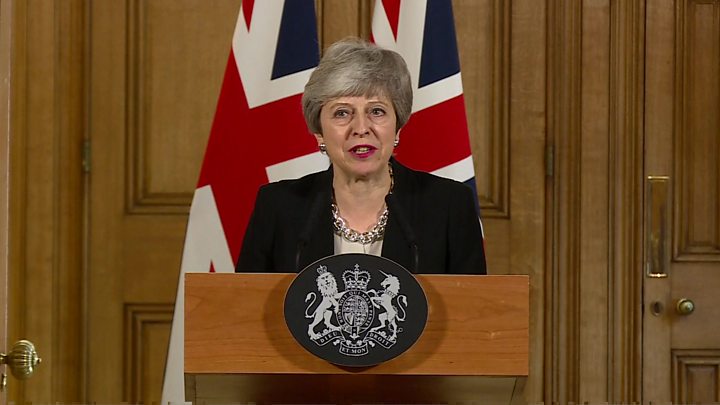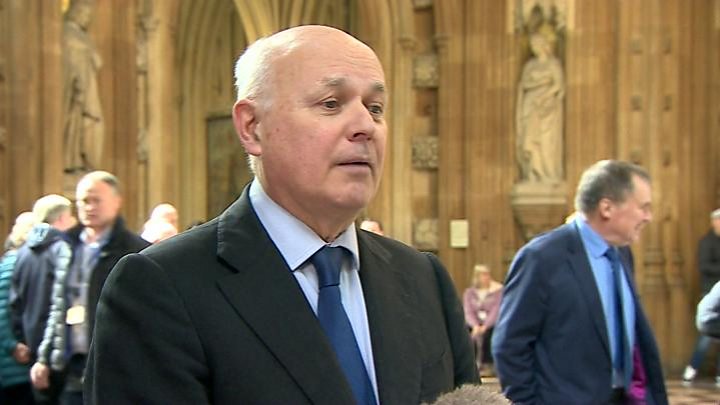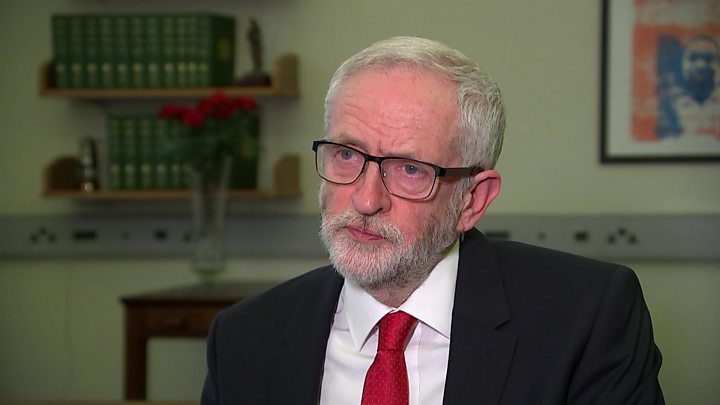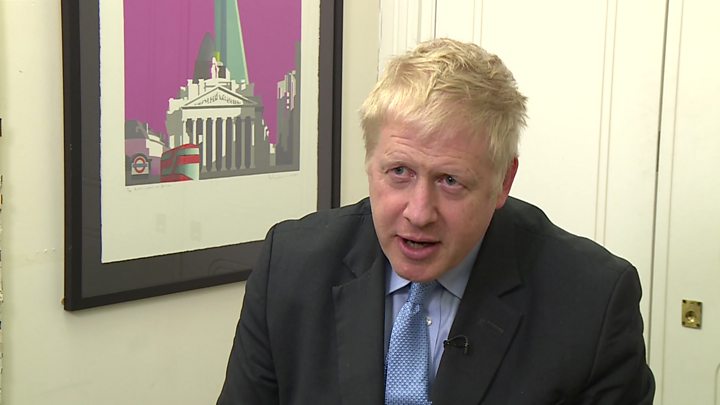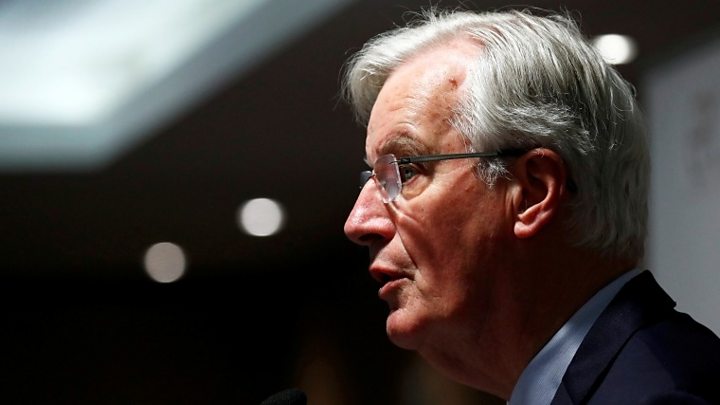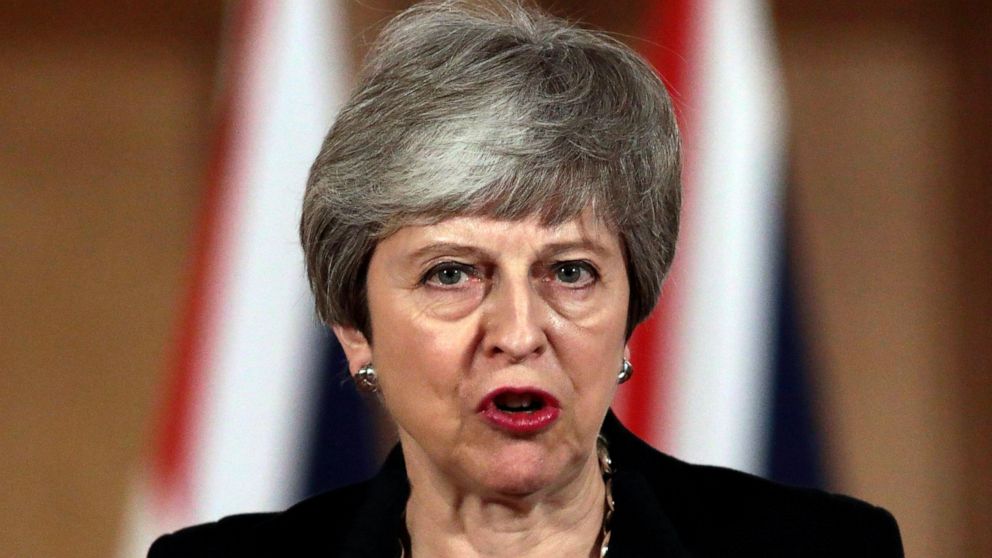
Prime Minister Theresa May and the leader of Britain's main opposition party were meeting Wednesday for talks on ending the impasse over the country's departure from the European Union — a surprise about-face that left pro-Brexit members of May's Conservative Party howling with outrage.
After failing three times to win Parliament's backing for her Brexit blueprint, May dramatically changed gear Tuesday, saying she would seek to delay Brexit — again — and hold talks with Labour Party leader Jeremy Corbyn to seek a compromise.
"The country needs a solution, the country deserves a solution, and that's what I'm working to find," May told lawmakers on Wednesday.
Corbyn said he welcomed May's "willingness to compromise to resolve the Brexit deadlock" and looked forward to talks with her.
May's bid for cross-party talks — after almost three years of seeking to push through her own version of Brexit — came amid EU warnings that a damaging no-deal Brexit is growing more likely by the day.
After British lawmakers three times rejected an agreement struck between the bloc and May late last year, the leaders of the EU's 27 remaining countries postponed the original March 29 Brexit date and gave the U.K. until April 12 approve the divorce deal or come up with a new plan.
So far the House of Commons has failed to find a majority for any alternative plan.
"A no deal on 12 April at midnight looks more and more likely," European Commission President Jean-Claude Juncker said Wednesday, adding that would bring disruption for EU citizens and businesses, but much worse damage economic for Britain.
EU Economy Commissioner Pierre Moscovici said a no-deal Brexit would mean long lines at borders and paperwork headaches for customs checks as Britain became separate from the EU overnight.
"I prefer strict controls at the price of a few lines of trucks to a health crisis or illegal trafficking," he said. "The security of Europeans will be our top priority."
Juncker said if Britain approved the Brexit divorce deal by April 12, Britain could have a short extension until May 22 to prepare for an orderly departure. After that, he said, a short delay to Brexit would no longer be possible.
May's pivot toward Labour points Britain toward a softer Brexit than the one she has championed since British voters decided in June 2016 to leave the EU. Labour wants the U.K. to remain in a customs union with the bloc to ensure frictionless trade. May has always ruled that out, saying it would limit Britain's ability to forge an independent trade policy.
Brexit Secretary Stephen Barclay said the "remorseless logic" of Parliament's failure to back the prime minister's deal was that the country was heading toward a softer form of Brexit.
May's decision to negotiate with Corbyn is risky for both the Conservatives and Labour, and could widen divisions over Brexit that run through both parties.
Labour is formally committed to enacting voters' decision to leave the EU, but many of the party's lawmakers want a new referendum on Brexit that could keep Britain in the bloc. They will be angry if the party actively helps bring about Brexit.
The Conservatives are even more bitterly split between those who want to keep close economic ties with the EU and Brexiteers who say Britain must make a clean break in order to take control of its laws and trade policy.
The Brexit-backers condemned May's shift. Former Foreign Secretary Boris Johnson said Brexit "is becoming soft to the point of disintegration." Ex-Conservative leader Iain Duncan Smith said he was "absolutely appalled" by May's talks with Corbyn.
Junior Wales Minister Nigel Adams of the Conservative party quit his post, sending the prime minister a letter criticizing her for seeking a deal with "a Marxist who has never once in his political life out British interests first" — a reference to the left-wing Corbyn.
"It is clear we will now end up in the customs union. That is not the Brexit my constituents were promised," Adams wrote.
Meanwhile, pro-EU lawmakers are not banking on talks between May and Corbyn succeeding. A group of legislators intent on avoiding a no-deal Brexit are trying to ensure that Britain cannot crash out of the EU, either by accident or by design.
A bill scheduled for debate Wednesday would compel May to seek to extend the Brexit process beyond April 12 in order to prevent a no-deal departure. Its backers hope to push the bill through into law before May attends an April 10 summit in Brussels where EU leaders expect to hear details of Britain's new Brexit plan.
EU leaders have given a cautious welcome to May's attempt at rapprochement.
Austrian Chancellor Sebastian Kurz said "there is no Plan B" with a majority in Britain's Parliament.
"Let's keep our fingers crossed for Theresa May in her efforts," he said in Vienna.
Britain's televised political melodrama over Brexit — with its weeks of passionate debates, narrow votes and seemingly endless crises — has left EU leaders exasperated, but also fascinated.
The European Union's Brexit coordinator, Guy Verhofstadt, joked that "the sessions in the House of Commons have become more popular than the matches in the Premier League."
"The trouble is that it is always a draw in the House of Commons," he said.
———
Raf Casert in Brussels and Geir Moulson in Berlin contributed to this story.
———
Follow AP's full coverage of Brexit at: https://www.apnews.com/Brexit
https://abcnews.go.com/Politics/wireStory/uk-brexit-chief-offering-blank-check-talks-62132986
2019-04-03 11:48:45Z
CBMiXWh0dHBzOi8vYWJjbmV3cy5nby5jb20vUG9saXRpY3Mvd2lyZVN0b3J5L3VrLWJyZXhpdC1jaGllZi1vZmZlcmluZy1ibGFuay1jaGVjay10YWxrcy02MjEzMjk4NtIBqAFodHRwczovL2FiY25ld3MtZ28tY29tLmNkbi5hbXBwcm9qZWN0Lm9yZy92L3MvYWJjbmV3cy5nby5jb20vYW1wL1BvbGl0aWNzL3dpcmVTdG9yeS91ay1icmV4aXQtY2hpZWYtb2ZmZXJpbmctYmxhbmstY2hlY2stdGFsa3MtNjIxMzI5ODY_YW1wX2pzX3Y9MC4xI3dlYnZpZXc9MSZjYXA9c3dpcGU
